| Listing 1 - 10 of 19 | << page >> |
Sort by
|
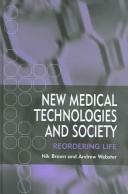
ISBN: 0745627234 0745627242 Year: 2004 Publisher: Londen Polity press
Abstract | Keywords | Export | Availability | Bookmark
 Loading...
Loading...Choose an application
- Reference Manager
- EndNote
- RefWorks (Direct export to RefWorks)
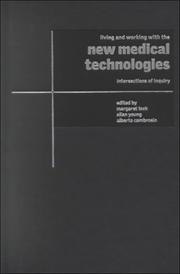
ISBN: 0521652103 0521655684 0511621760 0511839278 Year: 2000 Volume: 8 Publisher: Cambridge : Cambridge University Press,
Abstract | Keywords | Export | Availability | Bookmark
 Loading...
Loading...Choose an application
- Reference Manager
- EndNote
- RefWorks (Direct export to RefWorks)
This stimulating collection of essays is the product of face-to-face dialogues among anthropologists, sociologists, and philosopher-historians, all of whom focus their attention on the newly created biomedical technologies and their application in practice. Drawing on ethnographic and historical case studies, the authors show how biomedical technologies are produced through the agencies of tools and techniques, scientists and doctors, funding bodies, patients, clients, and the public. Despite shared concerns, these essays reveal that the authors have achieved no consensus about the objectives of their research, and the deep epistemological divides clearly remain - making for provocative reading.
Medical technology --- Medical innovations --- Medical anthropology. --- Technologie médicale --- Medecine --- Anthropologie médicale --- Social aspects. --- Social aspects --- Aspect social --- Innovations --- Technology, Medical --- Anthropology --- trends. --- Technologie médicale --- Anthropologie médicale --- Social Sciences --- Medical care --- Medicine --- Society and medical innovations --- Anthropological aspects
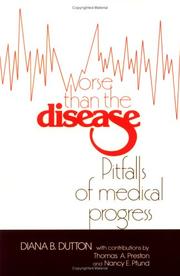
ISBN: 0521395577 0521340233 0511572956 0511872607 Year: 1988 Publisher: Cambridge : Cambridge University Press,
Abstract | Keywords | Export | Availability | Bookmark
 Loading...
Loading...Choose an application
- Reference Manager
- EndNote
- RefWorks (Direct export to RefWorks)
This book examines four medical innovations that epitomize the pitfalls of progress: DES, a synthetic estrogen prescribed to millions of women to prevent miscarriages, which produced devastating side effects; the artificial heart; the 1976 swine flu immunization program; and genetic engineering. Dutton and the contributors trace the human choices that govern medical and scientific innovation and explore the political, economic, and social factors that influence those choices. In the process, they reveal a deep gulf between the priorities of medical innovation and the concerns of the general public. They then propose concrete policy changes to help bridge that gulf.
Arts and Humanities --- History --- Medical innovations --- Social aspects --- Social aspects. --- Moral and ethical aspects --- Moral and ethical aspects. --- Economic aspects --- Economic aspects. --- Innovations, Medical --- Medicine --- Medical technology --- Technological innovations --- Society and medical innovations --- Innovations
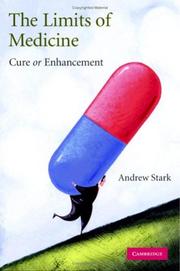
ISBN: 1107155606 1280458550 9786610458554 0511191561 051116050X 0511161808 0511313225 051161649X 0511161077 0521856310 0521672260 Year: 2006 Publisher: Cambridge : Cambridge University Press,
Abstract | Keywords | Export | Availability | Bookmark
 Loading...
Loading...Choose an application
- Reference Manager
- EndNote
- RefWorks (Direct export to RefWorks)
What are the final limits of medicine? What should we not try to cure medically, even if we had the necessary financial resources and technology? This book philosophically addresses these questions by examining two mirror-image debates in tandem. Members of certain groups, who are deemed by traditional standards to have a medical condition, such as deafness, obesity, or anorexia, argue that they have created their own cultures and ways of life. Curing their conditions would be a form of genocide. Members of other groups are seeking to provide medical treatment to what would conventionally be deemed 'cultural conditions'. Mild neurotics who take anti-depressants to elevate their mood, runners who use steroids, or men and women seeking cosmetic surgery are asking for medical treatment for problems that might be solved culturally, by changing norms, pressures, or expectations in the broader culture. Each of these two debates endeavors to locate medicine's final frontier and to articulate what it is that we should not treat medically even if we could. This volume analyzes what these two contemporary debates have to say to each other and thus offers a new way of determining medicine's final limits.
Medicine --- Therapeutics --- Medical innovations --- Perfection. --- Flawlessness --- Perfection (Philosophy) --- Perfectionism (Philosophy) --- Virtuosity --- Wholeness --- Mysticism --- Philosophy --- Excellence --- Imperfection --- Society and medical innovations --- Medical treatment --- Therapy --- Treatment of diseases --- Treatments for diseases --- Clinical medicine --- Health Workforce --- Philosophy. --- Social aspects. --- Arts and Humanities
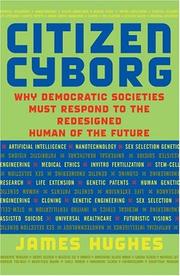
ISBN: 0813341981 9780813341989 Year: 2004 Publisher: Cambridge Westview
Abstract | Keywords | Export | Availability | Bookmark
 Loading...
Loading...Choose an application
- Reference Manager
- EndNote
- RefWorks (Direct export to RefWorks)
Medical innovations --- Biotechnology --- Nanotechnology --- Cybernetics --- Medecine --- Biotechnologie --- Nanotechnologie --- Cybernétique --- Social aspects. --- Innovations --- Aspect social --- 061 Ethische problemen --- Philosophy of nature --- Philosophical anthropology --- Cybernétique --- Molecular technology --- Nanoscale technology --- High technology --- Society and medical innovations --- Mechanical brains --- Control theory --- Electronics --- System theory --- Social aspects
Book
ISBN: 9781405195812 1405195819 Year: 2011 Publisher: Chichester Wiley-Blackwell
Abstract | Keywords | Export | Availability | Bookmark
 Loading...
Loading...Choose an application
- Reference Manager
- EndNote
- RefWorks (Direct export to RefWorks)
Medical innovations --- Médecine --- Medecine --- Moral and ethical aspects. --- Government policy --- Social aspects. --- Innovations --- Aspect moral --- Politique gouvernementale --- Aspect social --- 174.2 --- 796.011.5 --- Society and medical innovations --- Innovations, Medical --- Medicine --- Medical technology --- Technological innovations --- 796.011.5 Ethiek van de sport. Fair play --- Ethiek van de sport. Fair play --- 174.2 Beroepsmoraal van de artsen. Medische beroepsethiek --- Beroepsmoraal van de artsen. Medische beroepsethiek --- Moral and ethical aspects --- Social aspects
Book
ISBN: 9781685851033 Year: 2021 Publisher: Boulder, CO : Lynne Rienner Publishers,
Abstract | Keywords | Export | Availability | Bookmark
 Loading...
Loading...Choose an application
- Reference Manager
- EndNote
- RefWorks (Direct export to RefWorks)
Despite a century of advances in modern medicine, as well as the rapid development of Covid vaccines, the global pharmaceutical industry has largely failed to bring to market drugs that actually cure disease. Why? And looking further ... How can government policies stimulate investment in the development of curative drugs? Is there an untapped potential for "natural medicines" in new drug discovery? How have private-public sector partnerships transformed the ways we innovate? To what extent are medicinal plant biodiversity and human health codependent? Addressing this range of increasingly critical questions, Kathryn Ibata-Arens analyzes the rise and decline of the global innovation system for new drug development and proposes a policy framework for fast-tracking the implementation of new discoveries and preparing for future pandemics.
Drug development. --- Drugs --- Medical innovations --- Medical policy. --- POLITICAL SCIENCE / Public Policy / Science & Technology Policy. --- Quality control. --- Social aspects. --- Health care policy --- Health policy --- Medical care --- Medicine and state --- Policy, Medical --- Public health --- Public health policy --- State and medicine --- Science and state --- Social policy --- Society and medical innovations --- Medicaments --- Medications --- Medicine (Drugs) --- Medicines (Drugs) --- Pharmaceuticals --- Prescription drugs --- Bioactive compounds --- Medical supplies --- Pharmacopoeias --- Chemotherapy --- Materia medica --- Pharmacology --- Pharmacy --- Development of drugs --- New drug development --- Government policy --- Development

ISBN: 9780691121901 9780691121918 0691121915 0691121907 9786612458293 1400827507 1282458299 9781400827503 9781282458291 6612458291 Year: 2007 Publisher: Princeton/Oxford Princeton University Press
Abstract | Keywords | Export | Availability | Bookmark
 Loading...
Loading...Choose an application
- Reference Manager
- EndNote
- RefWorks (Direct export to RefWorks)
For centuries, medicine aimed to treat abnormalities. But today normality itself is open to medical modification. Equipped with a new molecular understanding of bodies and minds, and new techniques for manipulating basic life processes at the level of molecules, cells, and genes, medicine now seeks to manage human vital processes. The Politics of Life Itself offers a much-needed examination of recent developments in the life sciences and biomedicine that have led to the widespread politicization of medicine, human life, and biotechnology.Avoiding the hype of popular science and the pessimism of most social science, Nikolas Rose analyzes contemporary molecular biopolitics, examining developments in genomics, neuroscience, pharmacology, and psychopharmacology and the ways they have affected racial politics, crime control, and psychiatry. Rose analyzes the transformation of biomedicine from the practice of healing to the government of life; the new emphasis on treating disease susceptibilities rather than disease; the shift in our understanding of the patient; the emergence of new forms of medical activism; the rise of biocapital; and the mutations in biopower. He concludes that these developments have profound consequences for who we think we are, and who we want to be.
Sociology of knowledge --- Professional ethics. Deontology --- Human medicine --- Bioethics --- Medical innovations --- Bioéthique --- Medecine --- Social aspects --- Innovations --- Aspect social --- #SBIB:316.334.3M40 --- #SBIB:316.7C122 --- #SBIB:39A9 --- Medische sociologie: zorgenverstrekkers, relatie met hulpvragers --- Cultuursociologie: overtuigingen, waarden en houdingen --- Medische antropologie / gezondheid / handicaps --- Erfelijkheidsleer --- Fysiologie --- Psychofarmaca --- Geneesmiddelen --- Bioethics. --- Bioéthique. --- Médecine --- Bioethical Issues. --- Biotechnology --- Ethische aspecten. --- Genomica. --- Politieke aspecten. --- Social aspects. --- Aspect social. --- ethics. --- Bioéthique. --- Médecine --- Ethics. --- Bioéthique --- Society and medical innovations --- Biology --- Biomedical ethics --- Life sciences --- Life sciences ethics --- Moral and ethical aspects --- Bioethique. --- Science --- Bioethical Issue --- Issue, Bioethical --- Issues, Bioethical --- Euthanasia --- Human Experimentation --- Patient Rights --- Animal Experimentation --- Chemical engineering --- Genetic engineering --- Psychofarmacon --- Geneesmiddel --- Droit médical
Book
ISBN: 0226259471 9780226259475 Year: 1974 Publisher: Chicago: University of Chicago press,
Abstract | Keywords | Export | Availability | Bookmark
 Loading...
Loading...Choose an application
- Reference Manager
- EndNote
- RefWorks (Direct export to RefWorks)
Transplantation of organs, tissues, etc --- Hemodialysis --- Social aspects --- -Innovations, Medical --- Theologische ethiek: bio-ethiek (bioethiek); genetische experimenten; transplantatie; eugenetica --- -Theologische ethiek: bio-ethiek (bioethiek); genetische experimenten; transplantatie; eugenetica --- 241.63*5 Theologische ethiek: bio-ethiek (bioethiek); genetische experimenten; transplantatie; eugenetica --- -241.63*5 Theologische ethiek: bio-ethiek (bioethiek); genetische experimenten; transplantatie; eugenetica --- Medical innovations --- 241.63*5 --- Society and transplantation of organs, tissues, etc. --- Society and medical innovations --- Society and hemodialysis --- Sociology of health --- Professional ethics. Deontology --- United States --- Transplantation of organs, tissues, etc. --- Transplantation of organs, tissues, etc. - Social aspects --- Hemodialysis - Social aspects --- United States of America
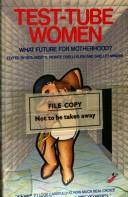
ISBN: 0863580300 Year: 1984 Publisher: London Pandora press
Abstract | Keywords | Export | Availability | Bookmark
 Loading...
Loading...Choose an application
- Reference Manager
- EndNote
- RefWorks (Direct export to RefWorks)
Human reproduction --- Medical innovations --- Pregnancy --- Pro-choice movement --- #GBIB:CBMER --- Abortion rights movement --- Free-to-choose movement --- Freedom-of-choice movement --- Pro-abortion movement --- Right-to-choose movement --- Gestation --- Society and medical innovations --- Social aspects --- Ethics of family. Ethics of sexuality --- Sociology of the family. Sociology of sexuality --- Demography --- Family law. Inheritance law --- Gynaecology. Obstetrics --- India --- Abortion --- Birth control --- Women's rights --- Conception --- Physiology --- Reproduction --- Government policy --- Citizen participation --- Moral and ethical aspects --- Religious aspects --- Sex --- Motherhood --- Reproductive rights --- Reproductive technology --- Population policy --- Book
| Listing 1 - 10 of 19 | << page >> |
Sort by
|

 Search
Search Feedback
Feedback About
About Help
Help News
News